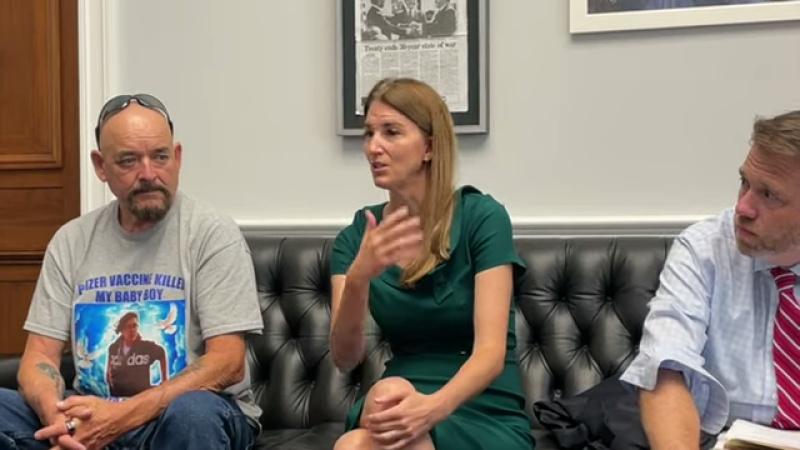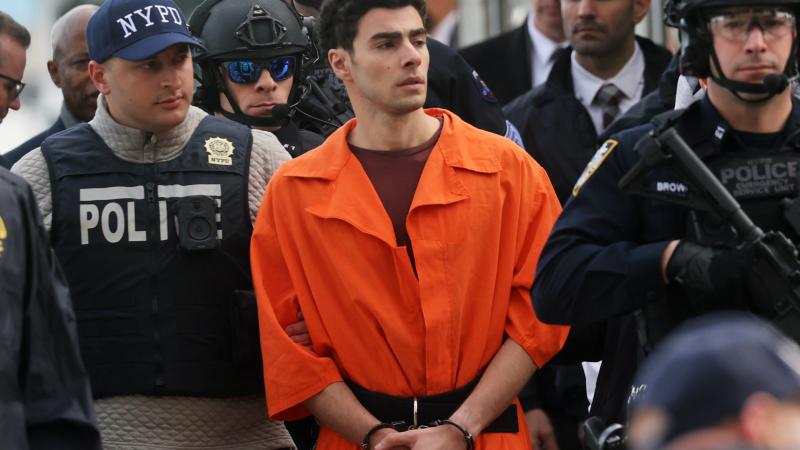Trump’s Russia talks are far from abnormal in world diplomacy, despite media outrage
President Donald Trump reignited hopes of a speedy end to the conflict last week, with posts outlining his calls between Russian President Vladimir Putin and Ukrainian President Volodymyr Zelensky.
Legacy media, Democrats, European politicians, and Ukrainian diplomats have been up in arms in recent weeks over the Trump administration’s handling of the Russia-Ukraine peace process, suggesting that the administration’s meetings with Russia diplomats somehow runs afoul of diplomatic norms, but such arrangements have plenty of precedent, even in the modern era.
President Donald Trump reignited hopes of a speedy end to the conflict last week, with posts outlining his calls between Russian President Vladimir Putin and Ukrainian President Volodymyr Zelensky. That he spoke with Putin first led to stern criticism from Europe and saw renewed accusations of his own ties to Russia. Even more furor came as Trump delegates suggested the Europeans would not have a place at the negotiating table.
French President Emmanuel Macron called an “emergency meeting” of European leaders amid the Riyadh talks to coordinate their own policy in a bid to have their say. After the meeting, UK Prime Minister Sir Keir Starmer expressed openness to a UK troop deployment, but insisted the U.S. had to work with Europe on a lasting deal.
“Europe must play its role, and I’m prepared to consider committing British forces on the ground alongside others if there is a lasting peace agreement, but there must be a U.S. backstop, because a U.S. security guarantee is the only way to effectively deter Russia from attacking Ukraine again,” he said.
But Secretary of State Marco Rubio, National Security Advisor Mike Waltz, and Middle East Special Envoy Steve Witkoff went on to meet with Russian Foreign Minister Sergei Lavrov and his contingent in Riyadh, Saudi Arabia, on Tuesday. The talks included Ukraine, but broadly addressed the prospect of renormalizing relations between Washington and Moscow. Both parties agreed to restaff their respective embassies and discussed a range of economic issues, including sanctions and energy production.
Only a beginning
Russian and American diplomats alike hailed the talks as productive, though they by no means signaled an imminent end to the fighting or a return to pre-war norms. Rubio, for his part, cautioned that the talks only signaled a beginning of the process and not a resolution.
“We not only listened, but also heard each other,” Lavrov told the Associated Press. “I have reason to believe that the American side has started to better understand our position.”
Ukrainians were not party to the discussions, a development that had many fearing that Washington planned to sell out Kyiv to Moscow. Former U.S. Ambassador Michael McFaul, a vocal critic of Trump and the Russian government, expressed concerns the talks could be “Yalta 2.0,” referencing a World War II conference of allied nations that saw western leaders cede a large sphere of influence to the Soviet Union.
The talks were bilateral and addressed more than Ukraine
Though much of the media billed the meeting as a Ukrainian peace summit, the talks were in reality part of a broader diplomatic rapprochement between the U.S. and Russia and Ukraine was merely one of many topics at the summit. Despite the hysteria, even McFaul conceded that “[t]he Russian delegation is in Riyadh to improve US-Russia relations, not to negotiate an end of their invasion of Ukraine.”
Among the main topics were the return of American companies to Russia, economic cooperation, embassy staffing, and the creation of senior teams to discuss the conflict in eastern Europe. Stalwart Trump loyalists in Congress, moreover, expressed understanding that the talks’ Ukraine dialogues were merely introductory.
“This is simply sitting down with each side of the table trying to understand where they're coming from, what their demands are, what they want, and then you bring them, bring the two together. But this is, this is just the first step in a path to peace, and I think we should all be thankful for that,” Rep. Brandon Gill, R-Texas, said on the “John Solomon Reports” podcast.
“I don't think that we should ever prefer war to continue perpetually and President Trump is finally, we finally have a leader who is taking the first steps for that, but he has shown historically, especially in his first administration, to be an extraordinarily adept deal maker in foreign affairs,” he added.
Europe held a Ukraine peace summit without Russia
European frustrations with being left out of the Riyadh talks and the prospect of a deal proceeding without the input of their nations of Ukraine were somewhat ironic in light of last year’s “peace summit” in which European leaders met with Zelensky to discuss a conclusion to the war. That meeting notably excluded Russian delegates.
The June 2024 summit in Switzerland saw Zelensky work to sway the global community towards his vision for a lasting peace that included the restoration of Ukraine’s pre-2014 territory and a war crimes tribunal for Putin.
More than 100 countries attended the summit at Lake Lucerne, though it failed to achieve any meaningful results.
“Excellencies, I must also note that this summit could have been more results-oriented if the other party to the conflict — Russia — was present in the room,” Turkish Foreign Minister Hakan Fidan said at the time.
The media rollercoaster
After the talks concluded, Politico Playbook heralded “A new day for U.S.-Russia relations,” in a stunning pivot from its tone in the leadup to the talks. Writing in Playbook, the outlet’s Jack Blanchard described the American pivot away from Europe as the continent's “biggest foreign-policy crisis in decades.”
Much of that outlet’s reporting highlighted the contrast between American and European visions of the continent’s security future and painted the Riyadh talks as a wedge, though its subsequent reporting emphasized the bilateral angle.
The Associated Press also presented something of a pivot on the talks. One article leading up to the summit bore the headline “Ukraine and Europe worry about being sidelined as Trump pushes direct talks with Russia on war’s end.” After the meeting, the outlet’s main article read “Russia and US agree to work toward ending Ukraine war in a remarkable diplomatic shift.”
Several modern precedents
Initial talks between a mediating party and just one side of a dispute have plenty of precedent, both in recent conflicts and in decades prior. Such instances occurred during the Israel-Gaza conflict, the North Korean detente, the Yugoslav wars, and Vietnam, to name a few.
Before the ceasefire agreement between Israel and Hamas, Witkoff visited the Israeli government and brought Israeli Prime Minister Benjamin Netanyahu into line with the deal. Notably, many of its terms had been set due to negotiations under the Biden administration, but Witkoff received international credit for pushing the Israelis over the line to acceptance.
Trump’s first term dealings with North Korea, moreover, saw Washington’s envoys work with Pyongyang well before Trump or the South Korea President met at the demilitarized zone. Then CIA Director Mike Pompeo visited Pyongyang while senior North Korean officials came to the White House. Trump and Kim Jong Un ultimately met in Singapore.
During the Cold War, such meetings, both covert and official, were commonplace. In 1973, for example, Henry Kissinger visited Hanoi amid the Vietnam War to discuss a possible resolution with that government.
The Facts Inside Our Reporter's Notebook
Links
- reignited hopes
- he said
- told the Associated Press
- Michael McFaul
- McFaul conceded
- June 2024 summit
- Hakan Fidan said
- A new day for U.S.-Russia relations
- âbiggest foreign-policy crisis in decades.
- Ukraine and Europe worry about being sidelined as Trump pushes direct talks with Russia on warâs end
- Russia and US agree to work toward ending Ukraine war in a remarkable diplomatic shift
- international credit
- Henry Kissinger visited Hanoi












